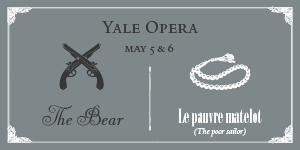Then, it was organic. Now, it’s organized.
When it threw its first show in the Madison Arts Barn on April 20, 2002, Manic Presents was called Kill Normal Presents. A loose subset of the defunct Guilford-based DIY label Kill Normal Records, it was run by high school kids chasing good times. But those kids were also on a serious mission: to book, promote and produce shows for in-state musicians, out-of-state touring acts and, of course, local fans in desperate need of a scene.
Mark Nussbaum—or “Manic Mark,” as he soon became known thanks to the screen name he used on local message boards—was there at the beginning, when it wasn’t about anything more than throwing the next show. “We weren’t thinking about
sponsored by
As the frequency of dates, genres of talent and types and locations of venues broadened—including to places like The Space, first booked in 2006—the enterprise became discrete. No longer a part of Kill Normal, it took a new name: Manic Productions. At the time of the name change, Nussbaum says he and two others, Mike McDonald and Dave Amato, had emerged as the main Manic-ers. For a while longer, money was still mostly an incidental element, but its importance would become undeniable. While slinging sandwiches at Subway and living in a New Haven punk/hardcore house dubbed Fort Sunshine, Nussbaum remembers a long walk to an ATM, where he emptied out his account to pay the bands on a bill that’d gone bust. “We basically went bankrupt,” he says. To eat, he and his housemates would snag the after-hours bread Atticus had left outside or hit up buffets at closing time and try to grab the leftovers.
It makes for a good story now, but at the time, it was a harsh wake-up call. Nussbaum decided that if Manic wasn’t financially solid within the next six months, he was out. That thought led to another: selling six-month passes to Manic shows, which raised enough quick capital to keep things afloat. According to Nussbaum, it also got Manic a torrent of much-needed press coverage. In 2011, the company commenced a deal to book the still-going free Wednesday shows at BAR, providing a regular, popular foothold in the heart of New Haven.
By then, the rebound was real. Along with the BAR arrangement, increasing engagements with institutions like Cafe Nine, The Ballroom at The Outer Space and even the Shubert Theater saw Manic become the most important on-the-ground booker/promoter in town. Years spent developing a huge and far-reaching network of relationships with larger, often out-of-state booking agencies—plus bands that were small when Manic first gave them a chance—led to landing bigger acts more often. Nussbaum was also supported by two exceptionally dedicated colleagues who are still heavily involved: Ben Levesque, who started in 2007—when he helped run a hard-hitting Disfear show at New Britain’s Trinity-on-Main—and Mario Nascimento, who started as an intern circa 2009.
Increasing team-ups and, finally, a merger with Premier Concerts, a Waterbury-based agency that typically books national acts throughout New England, led to a development that’s allowed Manic—and, to an extent, New Haven’s music scene—to realize its full potential: the launch, on May 1, 2015, of College Street Music Hall, a cavernous space carved from the remains of the long-abandoned Palace Theatre. Capable of accommodating about 2,000 people, the venue is large and professional enough—big stage, tiered main floor, huge sound, powerful lights, wide balcony—to make it worth a lot of national bands’ whiles but also intimate enough to handle more emerging acts.
If reading about Manic’s history feels like a whirlwind, imagine what it’s like for the people who lived it. For Nascimento, specifics as to the why and how of his involvement are elusive. “It’s really blurry. I just remember being in college
Levesque’s fondest memory at Manic is a sold-out Dinosaur Jr. show in Milford in 2009. “It was the first time we had a load-in before noon,” he says, chuckling. It was also Manic’s biggest show to date, which of course it’s since far exceeded.
Munching on pizza at BAR, Nussbaum also singles out the Dinosaur Jr. show as a highlight, before other memories come flooding out. “We were doing Toad’s. We were doing shows at the Center Church on the New Haven Green. We did The Evens at the New Haven Museum. We did Thurston Moore and Xiu Xiu at the Wadsworth Museum
Though some things have changed, the nature of the work hasn’t. “We’re still booking, promoting, running the shows. I still flyer at the end of most shows… I love the interactions with people—thanking them for coming and giving them a flyer for the next
Having rebranded to Manic Presents as of April 3, 2017, Manic’s journey culminated in a 15th-anniversary show at CSMH two Thursdays ago. Starring the soaring instrumental post-rock act Explosions in the Sky, whose status as an internationally touring band with a peculiar musical niche mirrors Manic’s own big/little dualism, the band’s dynamic sound, authentic stage presence and tasteful light design made for a memorable and fitting tribute indeed.
Manic Presents
info@manicpresents.com
www.manicpresents.com
Written and photographed by Dan Mims. Images #2-15 depict Explosions in the Sky during Manic’s 15th-anniversary show.








